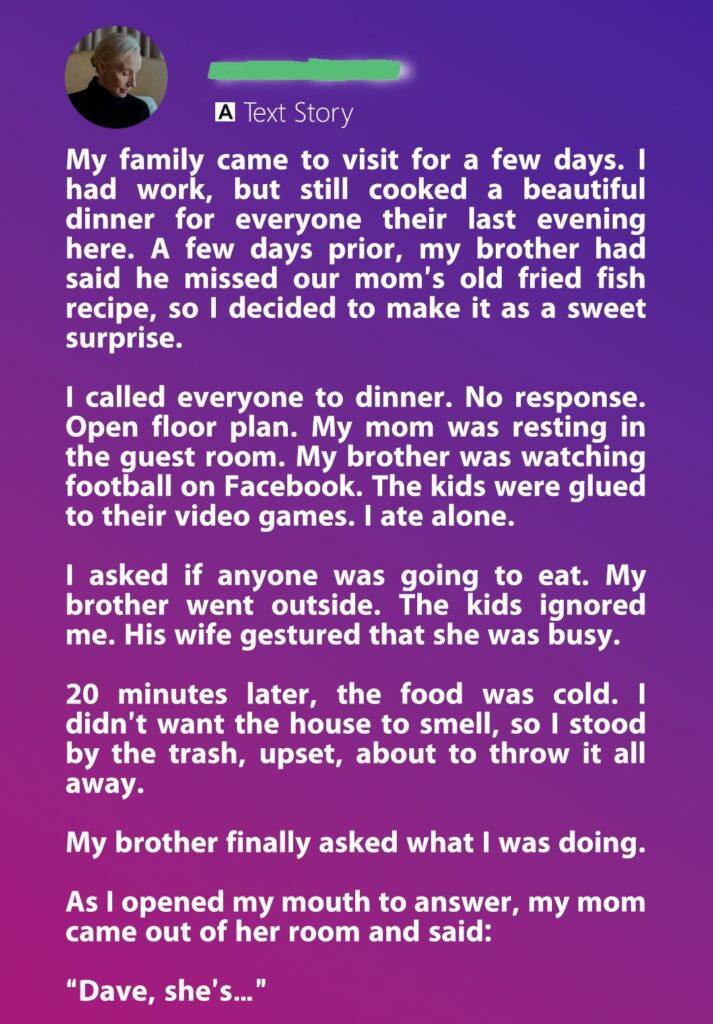When my brother and his family arrived, I welcomed them with warmth and a home-cooked meal I’d spent hours preparing. It wasn’t just dinner—it was my way of honoring our mother, who was ill and resting in her room. I wanted to create a moment of connection, a gesture of love. But they didn’t see it that way.
They treated my home like a hotel. My brother’s wife barked orders, his kids ran wild, and I was invisible—except when they needed something. No one acknowledged the food. They ordered pizza behind my back, laughed in the living room, and left my carefully prepared dishes untouched. I felt like a servant in my own home.
I didn’t yell. I didn’t cry. I quietly cleared the table, packed the food away, and sat alone in the kitchen. That’s when our mother, frail but fierce, stepped out of her room. She saw the untouched plates, the chaos, and the exhaustion on my face. And she spoke—not with anger, but with quiet authority.
She reminded them whose house this was. She reminded them of the love behind the meal, the effort, the respect that should’ve been shown. Her words weren’t loud, but they cut deep. My brother’s family fell silent. For the first time, they looked at me—not as a background figure, but as someone who mattered.

That night didn’t end with apologies or hugs. But it ended with truth. I drew a line. I reclaimed my space. And I learned that sometimes, silence isn’t weakness—it’s dignity. And when someone finally speaks up for you, it can echo louder than all the noise that came before.


